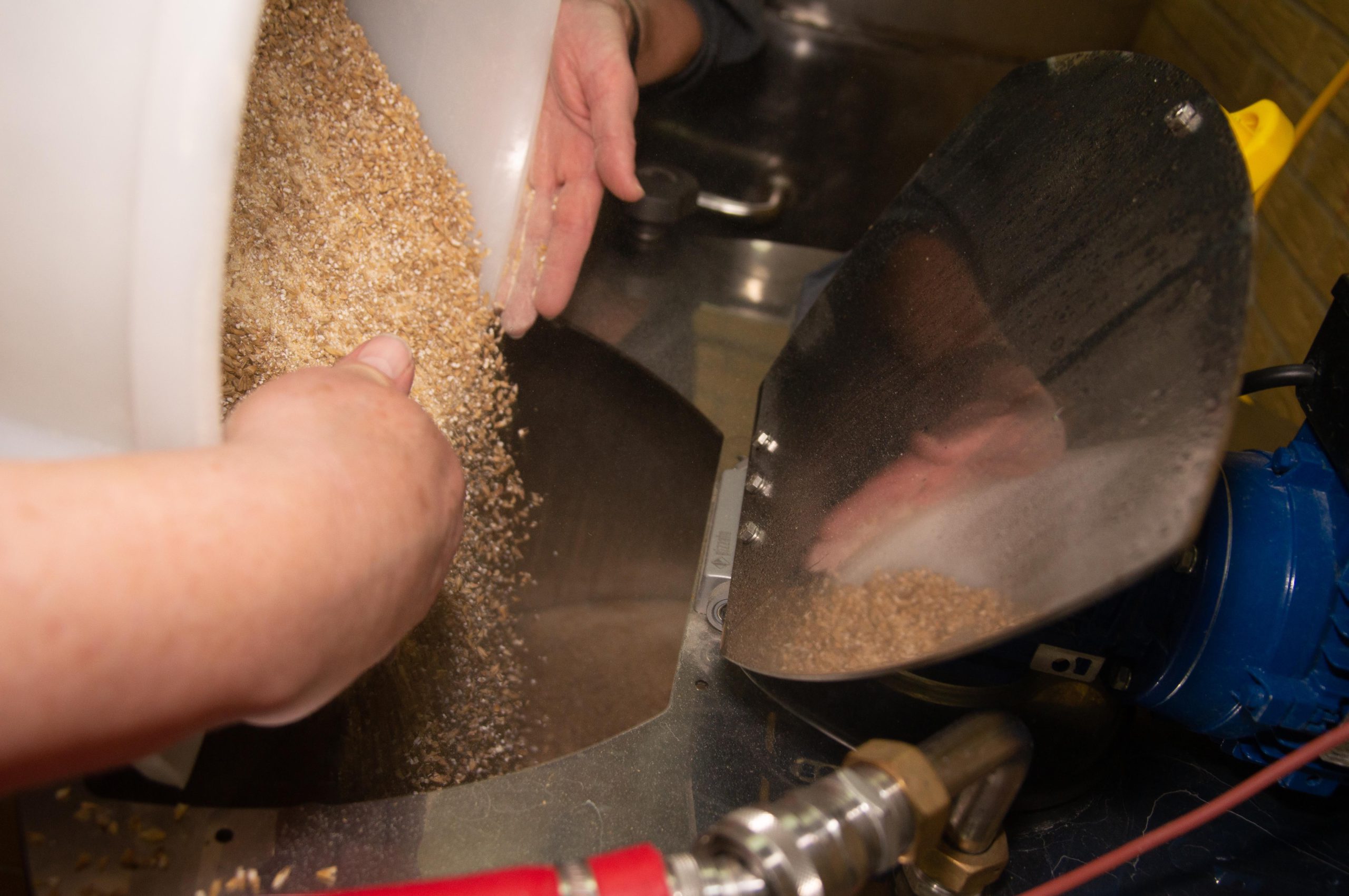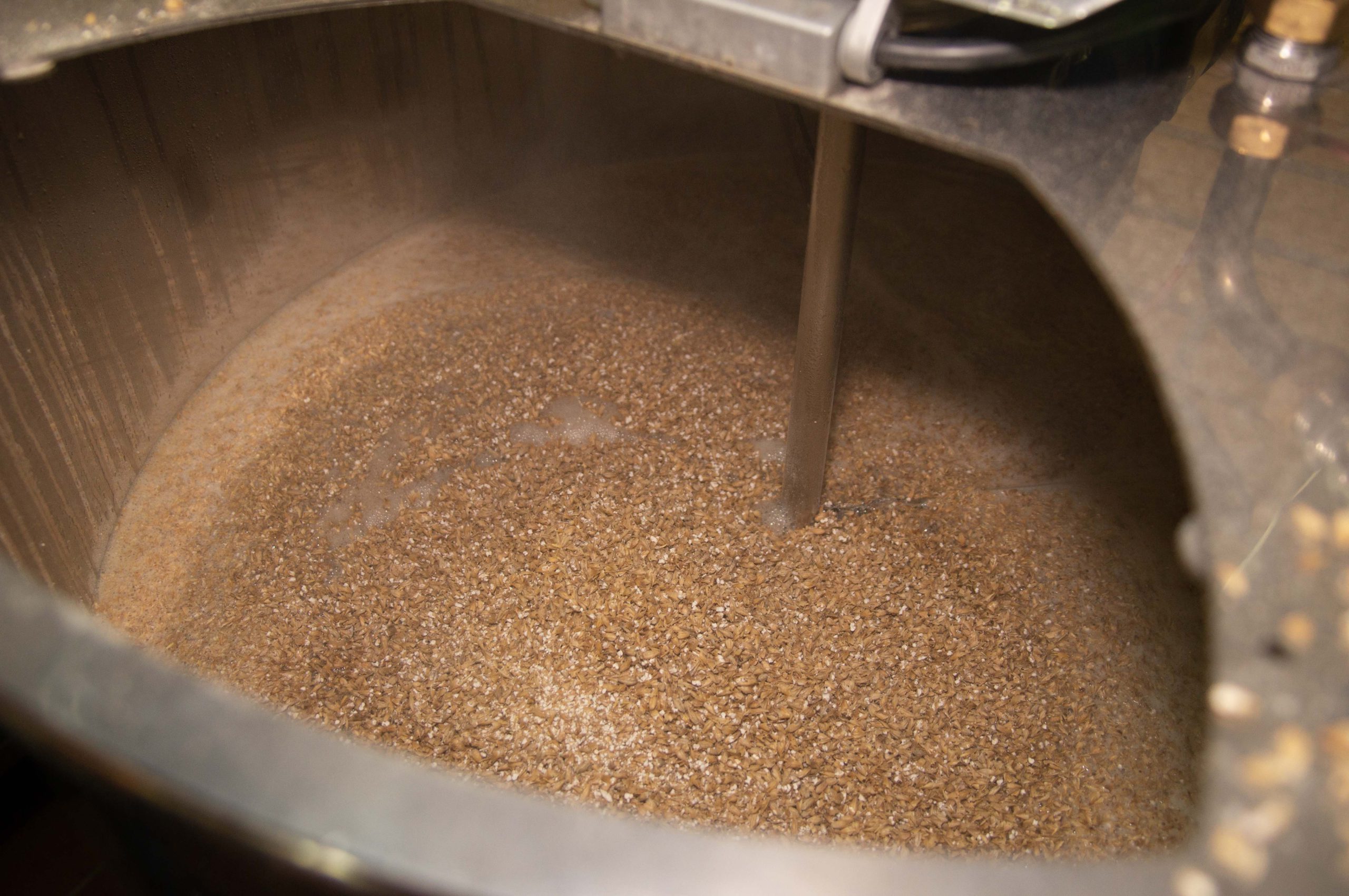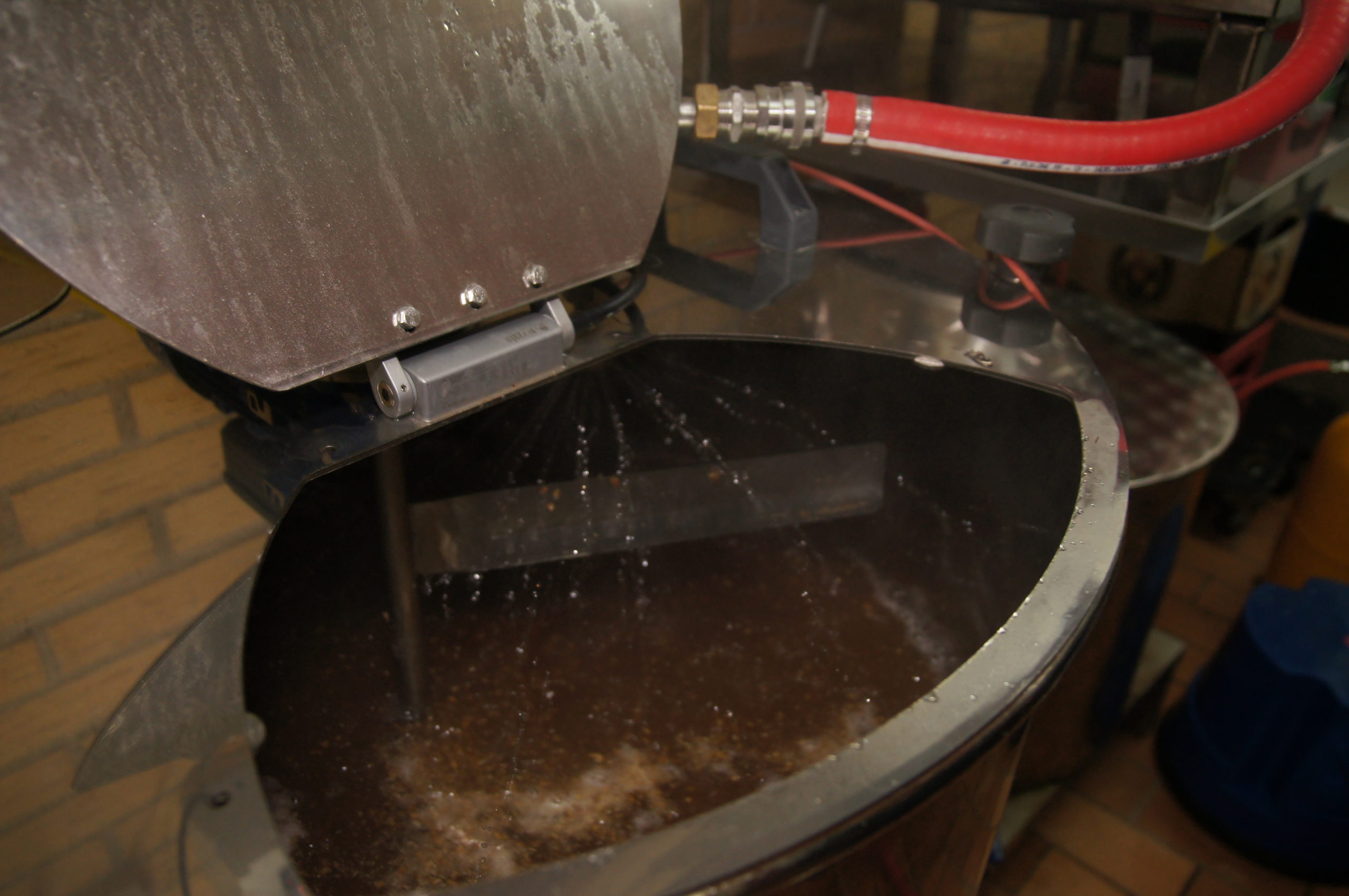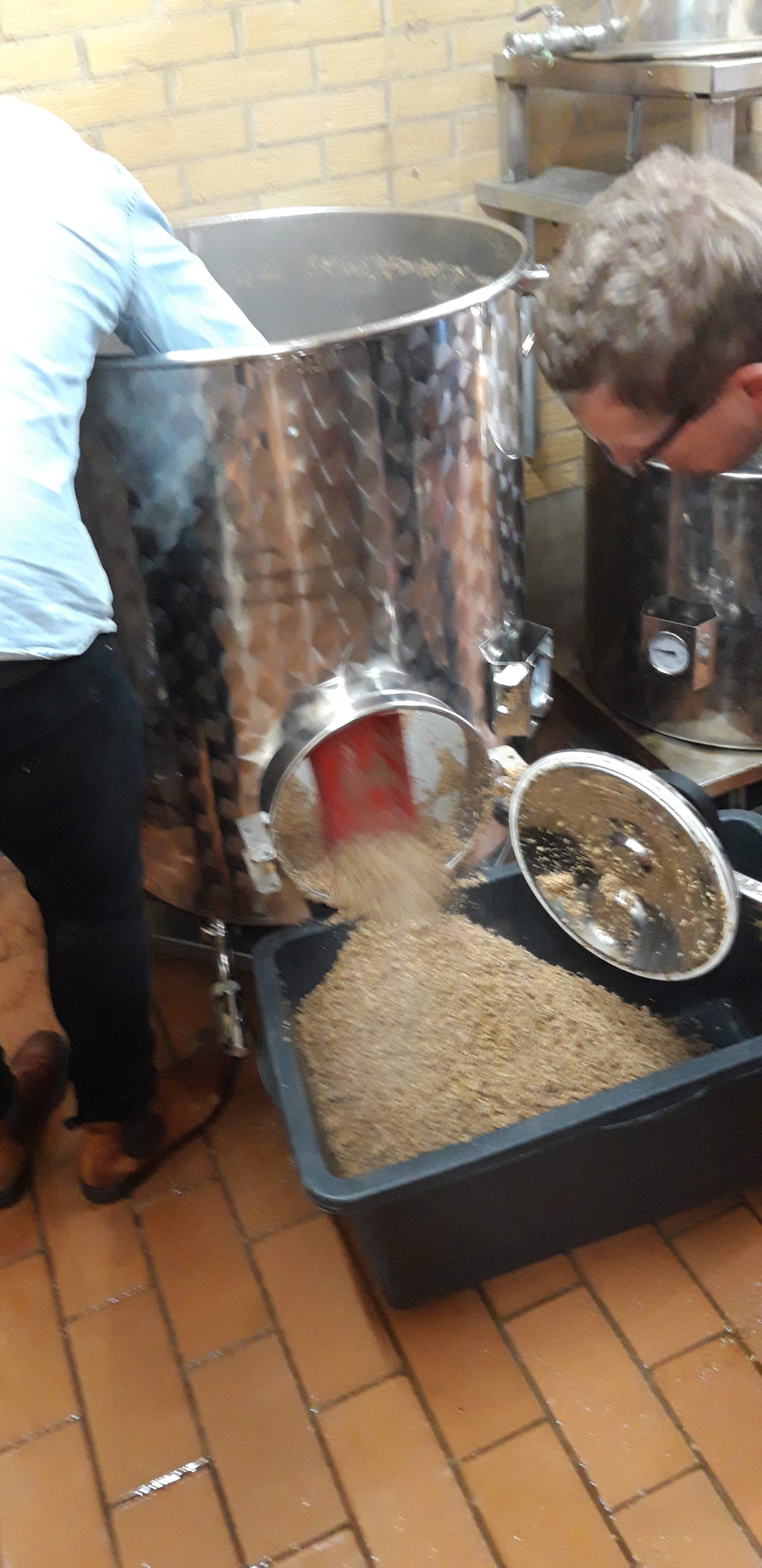
Water is heated in which the rolled malt is added. 2.6 parts water and 1 part malt must be in the mash vessel. The water is heated to a temperature of 74 ° C to obtain a mash temperature of between 65 ° and 68 ° C. The mashing can take place at the same temperature throughout the process, or in several steps starting at the lowest temperature. Sugar and starch are released from the malt and enzymes break them down into malt sugar which the yeast can later metabolize. We add a little enzymes that promote the alpha amylase, thereby increasing mash efficiency. Mashing lasts from 1 to 1½ hours. The sweetness and taste of the finished beer is affected by how the mashing is performed. During the process, the mash is stirred by the built-in mixer.


When the mashing is finished, this is pumped over to the Wort vessel, at the same time as water is added which is heated to just below 80 ° C. This keeps the viscosity of the mash as low as possible, and as much sugar as possible is moved to the Wort vessel. The temperature must not exceed 80 ° C as bitter-tasting tannins, tannic acid, can then be released from the shells. We have a "fake" bottom in the pot which sieves the kernels out when we pump the mash into the Wort vessel.

The residues, Mask, contain many proteins and are used for animal feed.

